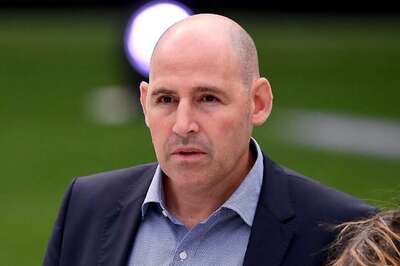Everyone has been a victim of Murphy's Law - when things go wrong, they go wrong in spades. I was recently reminded of Murphy's Law when I heard the plight of a friend of mine. Not only had she been recently widowed but was also left penniless because her husband had left her in the dark about all financial and practical matters.
Clearly, this phase is chaotic but one needs to be prepared. From phone calls to bills to investments etc, everything needs to be looked into carefully. There is no harm in being prepared for the worst. Here is a checklist to aid you:
First take a break for a couple of months so you can recover emotionally and get ready to take charge and control things.
Take no major financial decisions now. Let money remain in fixed deposits and/or savings account of liquid funds for a couple of months.
To start with a couple of simple things to look out for would be bills and utility payments. Simply make those payments on time so that basic necessities do not suffer.
Many people will approach you to invest in various schemes. No matter how good their pitch and how lucrative the opportunity, push them away. There is rarely any investment or opportunity that can't wait or will not come by again.
Talk to other widows who have been in this phase for some time. Understand what they are doing and how they are managing things. This will give you confidence, boost your morale and help you learn from the issues they faced.
This is a time where family, friends and generally everyone around wants to help you with condolences, emotional support and financial advice. Accept the condolences. Stay away from the advice, which is quite likely to be conflicting and can cause unnecessary stress and pressure.
First look at assets. List them on a piece of paper.
Then look into receivables. How much will come in or has come in via monies owed to your husband, death benefits from employment, life insurance policies, spouse pension etc? Make a log of your inflows.
Next, look at liabilities. Take all regular expenses into consideration. Eliminate irrelevant ones, such as extra telephone line/s, credit cards, etc. Check and double check if there are payments to be made by your husband to vendors/ creditors so that you are not cheated and do not double pay.
Pay off any expensive loans such as personal loans and overdrafts. But do consult an expert for payment of large liabilities such as housing loans. There could be better ways to use that money. Or you may need the money for something in the near or distant future.
This brings you to another important area of life management: ensuring there is enough always. This is the point where you should sit with a planner. This way, you can understand the implications of regular future monthly expenses, your other financial needs, goals and commitment/s.
Make a list of your short-term and long-term requirements, other questions, concerns, documents or things you don't understand well. Ask all these questions to your advisor.
If your advisor is not willing to spend time hours with you to understand your requirements and help you plan your life, he is not worthy of your patronage. It is very important to find someone you are very comfortable with and who can help you.
Take your children into confidence if you have to. Else, seek financial advice from someone neutral or an outsider.
These are just a few starting steps. It’s important not to panic. Understand that you will have to tune yourself to learning more, bit by bit. Things like how investments work, how brokers and agents function, issues on transparency, how to recognise good v/s not so good advice etc -- which will all come with time.
Remember, life has changed significantly, but it does not mean that lifestyle has to change with it.
Disclaimer: The contents of the above article are the intellectual property and copyright of the author Kartik Jhaveri. No part may be used or reproduced in any form or manner. If you choose to act upon the information contained in the above article it is at your own risk. This article is purely educative and you are strongly advised to consult an expert prior to taking any significant decision.
Original news source




















Comments
0 comment